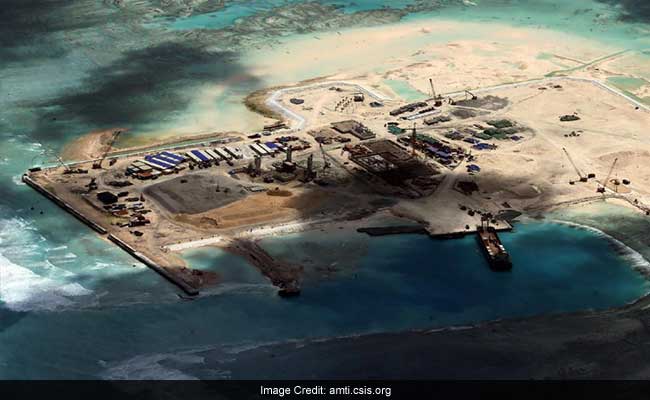Although the technical question it had to decide was whether certain features in the sea were islands, rocks or mere "low-tide elevations", the significance of the verdict was that it puts a legal lid on Beijing's expansive claim that almost the whole of the South China Sea was its own, based on history and asserted by drawing a controversial nine-dashed line on the map. The tribunal dismissed China's claims and ruled that its actions had, among others, indeed violated the Philippines sovereignty, damaged the marine environment and some marine species, all with the knowledge of the Chinese government.
Since the Philippines took the case to the PCA in 2013, the Chinese government under President Xi Jinping refused to accept the tribunal's jurisdiction and refused to contest the case. Given that the tribunal clearly not only has the authority to hear the case, but also hear it ex parte under the UN Convention on the Law of the Sea (UNCLOS) to which China is a party, Beijing's position reeked of arrogance, defiance and ultimately, as it turned out, foolhardiness. China remains defiant, and sent four of its fleets to carry out its largest-ever live firing exercise in the South China Sea.

The tribunal ruled that 'there was no legal basis for China to claim historic rights to resources.'
Therein lies the rub. Since the PCA's verdict is binding but lacks an enforcement mechanism, whether or not international law will be upheld depends on the balance of power. China vs Philippines in the Hague is one thing. In the South China Sea, it is entirely another. Neither the United States nor the Philippines' ASEAN partners are likely to want to come to blows with China on Manila's behalf. Manila could take the case to the United Nations Security Council for enforcement, where Beijing has a veto. As Graham Allison reminds us, none of the permanent members of the UN Security Council have ever complied with PCA'S verdict. So the best that can happen at the UNSC is for Beijing to be isolated and forced to use its veto. Facts won't change on the water.
If the United States, the Philippines, Vietnam and other claimants attempt to assert international law by attempting to evict Chinese vessels or installations in the sea, the skirmishes might escalate into military conflict. While no side wants the conflict to blow up, incidents have their own momentum and can get out of hand. Still unlikely, but possible.

Protesters throws flowers while chanting anti-Chinese slogans during a rally by different activist groups
New Delhi has done well not to comment on the tribunal's verdict, stating that it is "studying the matter" with tongue firmly in cheek. It is highly likely though, that our officials would be quietly clicking "Like" on (if there was one) the Facebook post of the PCA announcing the verdict. Because India is neither a disputant nor an "external" power in the conflict, it will be courted by both sides: China will want it to keep out of the matter, while Beijing's opponents would want it to play an active role in maintaining the maritime balance of power in the region. Given that China is unlikely to diminish its role in India's neighbourhood, it is in India's interests to up its engagement in China's.
It is necessary for India to continue both merchant and friendly naval voyages in the South China Sea in compliance with international law. Creating options when there is an opportunity is good statecraft - failing to do so is more likely to attract contempt than invite gratitude in Beijing.
(Nitin Pai is director of the Takshashila Institution, a think tank and school of public policy. These are his personal views.)
Disclaimer: The opinions expressed within this article are the personal opinions of the author. The facts and opinions appearing in the article do not reflect the views of NDTV and NDTV does not assume any responsibility or liability for the same.


